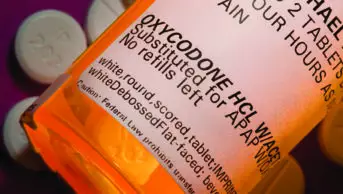
Shutterstock.com
Drug manufacturers are obliged under federal regulations to report serious and unexpected drug events to the US Food and Drug Administration (FDA) within 15 days, but a study published in JAMA Internal Medicine
[1]
on 27 July 2015 has found that almost one in ten adverse events is not reported within this time frame. The proportion not reported when a patient dies is even higher.
Researchers from the University of Minnesota analysed data on adverse drug events reported to the FDA between 1 January 2004 and 30 June 2014. Of 1.6 million reports, 160,383 (9.9%) were not received within 15 days, including 40,464 cases that involved a patient death.
Further analysis shows that events were less likely to be reported within 15 days if they involved a patient death — 88.3% of events involving a death were reported in the required time frame, compared with 90.7% of events that did not involve a death. Of the remaining adverse events involving death, 6.4% were reported within 16-90 days and 2.5% were reported within 91-180 days of the manufacturer being aware of them.
“It is possible that manufacturers spend additional time in verifying reports concerning deaths, but this discretion is outside the scope of the current regulatory regime,” say the researchers, who add that their analysis was likely to be an underestimate of the problem “given the anecdotal evidence of FDA warning letters to manufacturers alleging downward misclassification of serious adverse events”.
Rita Redberg, chief editor of JAMA Internal Medicine, points out that no disciplinary action has been taken against companies when they fail to submit reports to the FDA in the time frame required. “Clearly, the lack of consequences contributes to a lack of deterrence for these illegal and dangerous delays,” she says[2]
.
References
[1] Ma P, Marinovic I & Karaca-Mandic P. Research Letter. Drug manufacturers’ delayed disclosure of serious and unexpected adverse events to the US Food and Drug Administration. JAMA Intern Medicine 2015. doi:10.1001/jamainternmed.2015.3565.
[2] Redberg RF. Improving manufacturer reporting of adverse events to the US Food and Drug Administration. JAMA Intern Medicine 2015. doi:10.1001/jamainternmed.2015.3574.


